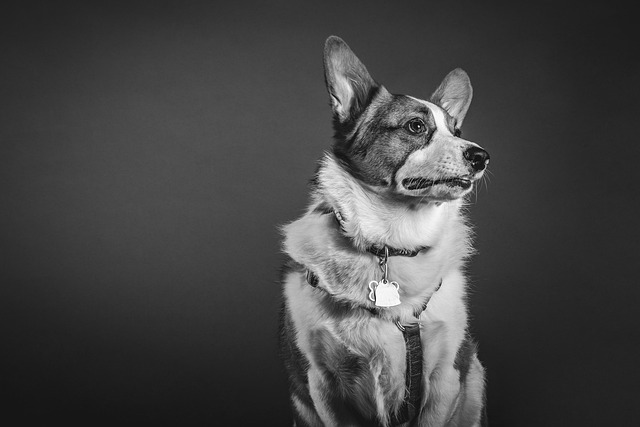
How to calm down an aggressive dog?
Seeing your dog growl, snarl, or bare their teeth can send a chill down your spine. Aggression isn’t just scary—it’s a cry for help from your furry friend.
Bringing a new puppy home is exciting, but it comes with its fair share of challenges—one of which is managing nighttime potty breaks. Many new dog owners find themselves wondering, "Should I take my puppy out at night?" The answer depends on several factors, including your puppy’s age, developmental stage, and individual needs. Let’s dive into the science and practical advice behind puppy nighttime toilet training so you can strike the right balance between ensuring potty training success and getting enough sleep.
Understanding your puppy’s bladder control is key to answering this question. Puppies are born with immature bladders, which means they lack the ability to hold their urine for extended periods. Generally, a puppy can hold its bladder for about one hour per month of age—so a two-month-old puppy might manage two hours, while a three-month-old could stretch to three. However, this isn’t a hard rule, as individual puppies may vary. Nighttime bladder control is even more challenging, as their bodies are still developing the ability to slow down urine production during sleep. This biological limitation makes nighttime toilet trips necessary for younger pups, especially under three or four months old. Be patient; your puppy is learning and growing, and their bladder capacity will improve over time.
Frequent nighttime potty breaks can take a toll on sleep quality—for both you and your puppy. Interrupted sleep isn’t ideal, as it can lead to fatigue and irritability, which might impact your daytime interactions with your pet. For your puppy, disrupted sleep can affect their development and mood. Puppies, like humans, experience REM sleep cycles, which are crucial for memory consolidation and learning. However, skipping nighttime potty breaks when your puppy genuinely needs them can lead to accidents, which might slow down potty training progress. Striking a balance between rest and meeting your puppy’s needs is essential.
So, when is it truly necessary to take your puppy out at night? Age is the biggest determining factor here. Puppies under three months old generally need at least one potty break during the night. Signs that your puppy might require a nighttime trip include whining, pacing, or restlessness in their crate or sleeping area. Puppies that have recently eaten, drank water, or engaged in activity close to bedtime may also have a stronger need to go. If your puppy is older than six months and consistently sleeping through the night without accidents, nighttime potty trips may no longer be necessary. Pay attention to your puppy’s behavior and adjust your routine accordingly.
Balancing potty training with a good night’s sleep takes some planning. Start by creating a bedtime routine that works for both you and your puppy. Avoid feeding or giving water to your puppy within two hours of bedtime to reduce the likelihood of nighttime urination. Take your puppy out for a bathroom break right before bed and make sure their sleeping area is comfortable and secure. Crate training can be particularly helpful here, as most puppies instinctively avoid soiling their sleeping space. Gradually, your puppy will learn to hold their bladder for longer periods, and nighttime interruptions will become less frequent.
Managing nighttime potty trips efficiently requires preparation and empathy. When you wake up to take your puppy out, keep the outing brief and boring—this isn’t playtime. Take them to their designated potty area, use a consistent cue like "go potty," and avoid engaging in excessive praise or excitement to keep them calm and focused. Once they’re done, return them to their sleeping area immediately. To make things easier on yourself, consider having supplies like a flashlight, poop bags, and a warm jacket ready by the door to minimize hassle. If your puppy seems anxious or struggles to settle back down, try calming techniques such as gentle petting or a soothing white noise machine near their crate.
Ultimately, nighttime potty training is a temporary challenge that will pass as your puppy grows. By understanding their developmental needs, planning ahead, and approaching potty breaks with patience and empathy, you’ll set your puppy up for success while maintaining your own well-being. Remember, every puppy is different, so adjust your approach as needed to find what works best for both of you.

Seeing your dog growl, snarl, or bare their teeth can send a chill down your spine. Aggression isn’t just scary—it’s a cry for help from your furry friend.

You’ve just brought home a fluffy 8-week-old puppy, and within minutes, they’ve had an accident on your brand - new rug.

Toilet training your dog varies widely by breed, age, and temperament. Patience, consistency, and tailored routines unlock success—no one-size-fits-all timeline here.

Ever noticed your normally friendly Labrador suddenly growling when you try to take away their food, or a Pomeranian snapping during playtime? This isn't just 'bad behavior'—it's conflict aggression, a survival mechanism gone awry.

Master puppy nighttime potty training by balancing their needs and your sleep. Learn when to take breaks, how to plan, and keep training stress-free for both.

Watching your dog growl,lunge,or snap at others can feel like a punch in the gut.It's natural to want to solve the problem on your own—after all,who knows your furry friend better than you?But training an aggressive dog isn't like teaching basic commands.